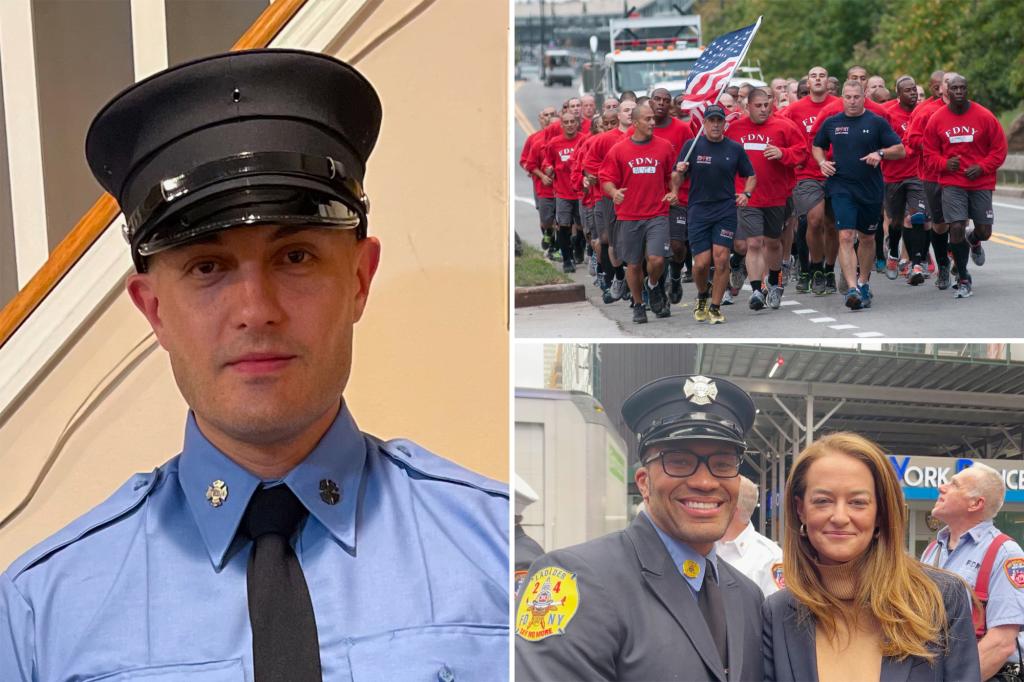The Allegations of Wage Theft and Abusive Practices at the FDNY Training Academy
Two former firefighters of the New York City Fire Department (FDNY), William H. Payne and Brandon Keeney, have initiated a class-action lawsuit against the city, alleging wage theft and abusive treatment during their time at the FDNY training academy. The core of their complaint revolves around the claim that they were compelled to work up to 30 unpaid hours per week, extending beyond their officially recognized 40-hour workweek. This unpaid work, they assert, included menial and humiliating tasks, creating an environment of exploitation and coercion. The lawsuit paints a picture of a system where probationary firefighters are subjected to unreasonable demands on their time and energy, without proper compensation or recourse.
Payne, who served at Ladder 24 in Midtown until his termination in September 2023, vividly describes the unpredictable nature of the workday at the academy. He recounts the expectation of arriving 90 minutes to two hours prior to their scheduled start time, often leading to 12-hour shifts. This unpredictable schedule, coupled with the pressure to conform, made it difficult for the recruits to maintain a healthy work-life balance. Payne claims he was fired for voicing his concerns about the unpaid work, highlighting a potential culture of retaliation within the department. The FDNY has declined to comment on the reasons for Payne’s termination, adding to the questions surrounding the case.
Keeney, who served at Engine Company 299 in Fresh Meadows until January 2023, corroborates Payne’s account, describing the academy environment as "aggressive" and abusive. He alleges that recruits were routinely subjected to verbal abuse and demeaning tasks, such as cleaning bathrooms and performing push-ups on stage. He describes a culture of intimidation, where recruits were discouraged from speaking out against the unfair practices, with a strict prohibition on cell phone use seemingly designed to prevent any external communication about the conditions within the academy. Keeney, who voluntarily left the FDNY in October 2023, compares the intensity of the academy experience to his previous role as a corrections officer, emphasizing the extreme nature of the environment.
The lawsuit, filed in Manhattan Supreme Court, alleges a systemic issue of unpaid labor within the FDNY training academy. The plaintiffs claim that the required extra hours, coupled with the humiliating tasks, amounted to a form of modern-day servitude. Their attorney, Tanvir H. Rahman, argues that no employer, regardless of prestige or importance, is exempt from labor laws that protect workers against wage theft. This case highlights the vulnerability of probationary employees, who may feel pressured to accept exploitative conditions for fear of jeopardizing their future careers.
The allegations raise broader concerns about the culture within the FDNY and the treatment of its recruits. The plaintiffs’ descriptions paint a picture of an institution where hazing and intimidation are normalized, and where speaking out against unfair practices is met with hostility. The case has the potential to spark a wider discussion about the working conditions within the FDNY and the need for greater oversight and accountability. The lawsuit’s class-action status opens the door for other former and current firefighters to join the suit if they believe they have also been subjected to similar unfair labor practices.
While the city’s Law Department has declined to comment specifically on the allegations, stating they will review the case and respond through the litigation process, the lawsuit raises serious questions that demand answers. The accusations of unpaid work, coupled with the descriptions of a hostile and abusive training environment, present a troubling picture of the FDNY academy. This case is likely to bring increased scrutiny on the department’s practices and could potentially force changes in how recruits are treated and compensated. The outcome of this lawsuit could have significant implications for the FDNY and its future recruitment practices. The legal battle that unfolds will likely delve into the complexities of labor laws, the culture within the FDNY, and the balance between rigorous training and the rights of employees.
The ongoing legal proceedings will be crucial in determining the veracity of the claims and the extent to which the alleged practices are systemic within the FDNY. The potential impact of this lawsuit extends beyond the individuals involved, touching upon broader issues of workplace fairness, employee rights, and the responsibility of institutions to protect their workers. The outcome of this case could significantly impact future training procedures and potentially reshape the dynamics within the FDNY. As the case progresses, it will undoubtedly shed light on the inner workings of the FDNY training academy and the experiences of those who pass through its doors.










